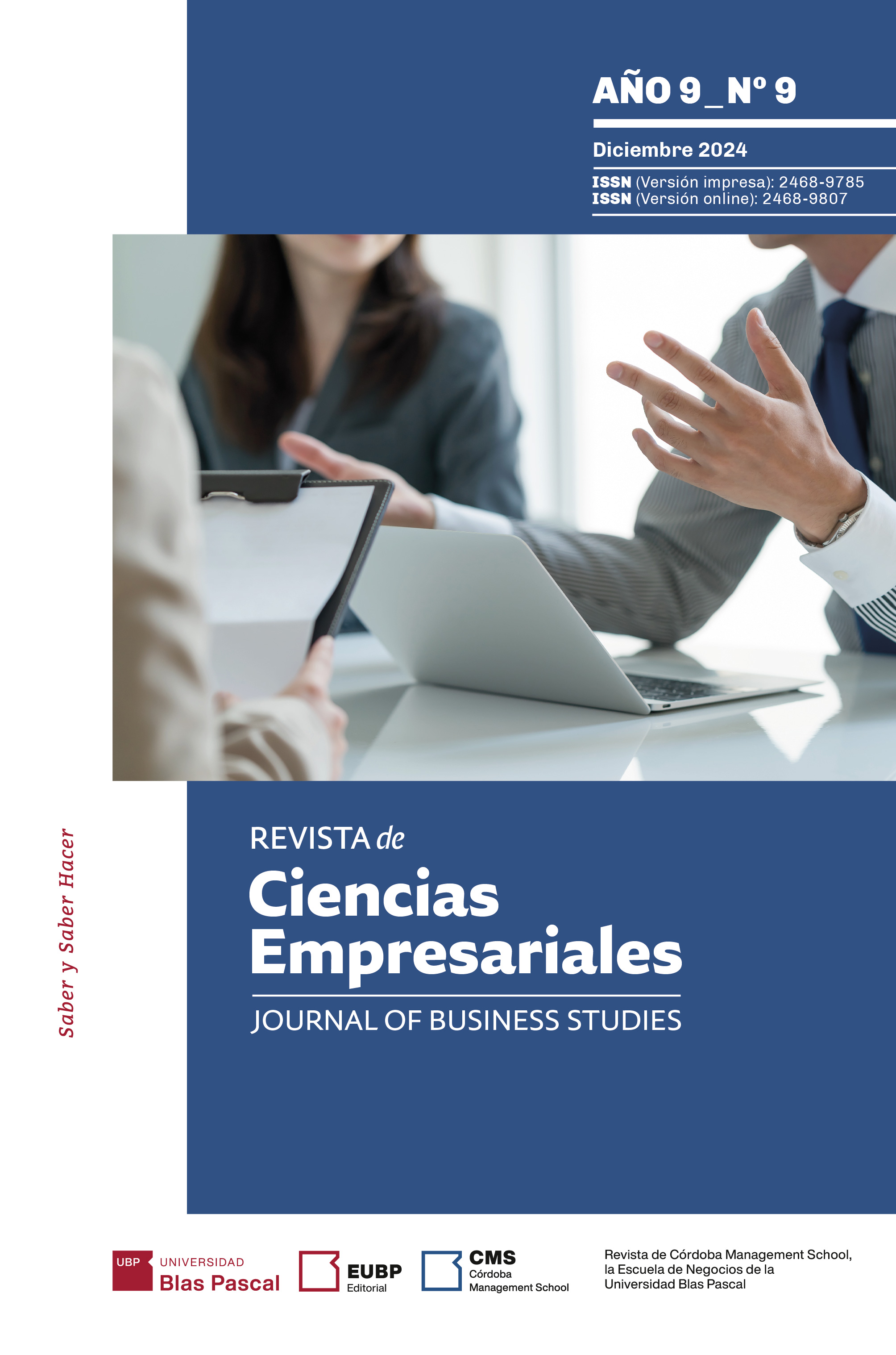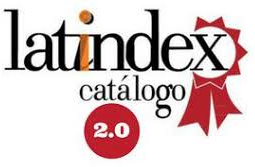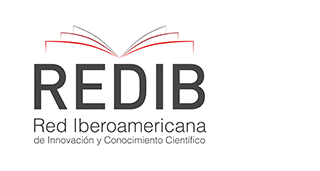Universidades y ODS: repensando la sostenibilidad a través de teorías organizativas y marcos globales
Universities and the SDGs: rethinking sustainability through organizational theories and global frameworks
DOI:
https://doi.org/10.37767/2468-9785(2024)003Palabras clave:
Universidad sostenible, ODS, Stakeholders, Legitimidad, Recursos y capacidades, Institucional, SDSN-PRME, Sustainable University, SDGs, Legitimacy, Resources and capacities, InstitutionalResumen
Este estudio explora cómo teorías organizativas justifican conceptualmente la integración de los ODS en universidades, identificando marcos como SDSN y PRME. Basado en revisiones de literatura científica, analiza enfoques teóricos predominantes para guiar la integración sostenible, resaltando limitaciones y su utilidad para investigadores y gestores en el contexto universitario.
Abstract
This study explores how organizational theories conceptually justify the integration of SDGs into universities, identifying frameworks such as SDSN and PRME. Based on a review of scientific literature, it analyzes predominant theoretical approaches to guide sustainable integration, highlighting limitations and its relevance for researchers and managers in the university context.
Referencias
Accord, S.D.G., 2017. The university and college sector's collective response to the sustainable development goals. http://www.sdgaccord.org/.
Altbach, P., Reisberg, L., & Rumbley, L. (2009). Trends in global higher education. Unesco.
Alonso-Almeida, M., Marimon, F., Casani, F. & Rodriguez-Pomeda, J. (2015). Diffusion of Sustainability Reporting in Universities: Current Situation and Future Perspectives. Journal of Cleaner Production, 106, 144–154.
Argandoña, A. (1998), La teoría de los stakeholders y el bien común, Documento de Investigación, 355, Navarra, IESE, Universidad de Navarra.
Baker-Shelley, A., van Zeijl-Rozema, A., & Martens, P. (2017). A conceptual synthesis of organisational transformation: How to diagnose, and navigate, pathways for sustainability at universities? Journal Of Cleaner Production, 145, 262-276.
Barney, J., & Arikan, A. (2001). The resource-based view: Origins and implications. Handbook of Strategic Management, forthcoming.
Barney J., Wright M., Ketchen D. (2001). The Resource-Based View of the Firm: Ten Years After 1991. Journal of Management, 27(6):625–641.
Bingham, L., Nabatchi, T. & O ́Leary, R. (2005), The new governance: Practices and processes for stakeholder and citizen participation in the work of government, Public Administration Review, 65 (5), 547-558.
Bobe, B.J. and Kober, R. (2015), “Measuring organisational capabilities in the higher education sector”, Education + Training, Vol. 57 No. 3, pp. 322-342.
Bueno Campos, Eduardo & Fernando Casani Fernández de Navarrete (2007), La tercera misión de la universidad. Enfoques e indicadores básicos para su evaluación. Economía Industrial, 366, 43-59.
Carpenter,V. y Feroz, E., (1992), GAAP as a symbol of legitimacy: new york state's decision to adopt generally accepted accounting principles, Accounting, Organizations and Society, 17 , 613-643
Cortese, A. (2003). The critical role of higher education in creating a sustainable future. Planning for Higher Education, 31(3), 15-22.
Deegan, C. (2002). Introduction. The legitimising effect of social and environmental disclosures – a theoretical foundation. Accounting, Auditing & Accountability Journal, 15(3), 282-311.
Deegan, C. (2009). Financial accounting theory. McGraw Hill, North Ryde, NSW, Australia.
Deegan, C. & Samkin, G. (2009). New Zealand financial accounting, McGraw-Hill, Sydney, Australia.
Deegan, C., et al. (2000). Firms disclosure reactions to major social incidents: Australian evidence. Accounting Forum, 24 (1), 101-130.
De Lange D.E. (2013). How do Universities Make Progress? Stakeholder-Related Mechanisms Affecting Adoption of Sustainability in University Curricula. Journal of Business Ethics, 118, 103-116.
De Haan, H.H. (2015), “Competitive advantage, what does it really mean in the context of public higher education institutions?”, International Journal of Educational Management, Vol. 29 No. 1, pp. 44-61.
DiMaggio, P. J., & Powell, W. W. (1983). The iron cage revisited: Institutional isomorphism and collective rationality in organizational fields. American Sociological Review, 48, 147–160.
Donaldson, T., & Preston, L. E. (1995). The stakeholder theory of the the corporation: Concepts, evidence, and implications. Academy of Management Review, 20(1), 65-91.
Elkington, J., & Rowlands, I. H. (1999). Cannibals with forks: The triple bottom line of 21st century business. Alternatives Journal, 25(4), 42.
Fernando, S. y Lawrence, S. A (2014) Theoretical Framework for CSR Practices: Integrating legitimacy theory, stakeholder theory and institutional theory.
Ferrer‐Balas,D. et al. ( 2008). An international comparative analysis of sustainability transformation across seven universities. International Journal of Sustainability in Higher Education, 9(3), 295-316.
Freeman, R. E. (1984). Strategic management: A stakeholder approach. Boston, MA, Pitman.
Freeman, R., Harrison, J., Wicks, A., Parmar, B., & de Colle, S. (2010). Stakeholder theory: The state of the art. New York, NY, Cambridge University Press.
Gaete, R. (2009). Participación de los stakeholders en la evaluación del comportamiento socialmente responsable de la gestión universitaria: perspectivas, obstáculos y propuestas. Comunicación presentada en el Congreso de AECA, Valladolid.
Gray, R., Bebbington, J. and Walters, D. (1993). Accounting for the Environment, Paul Chapman, London.
Gray, R., Owen, D. and Adams, C. (2009). Some theories for social accounting?: A review essay and a tentative pedagogic categorisation of theorisations around social accounting, in Freedman, M. and Jaggi, B. (Eds), Sustainability, Environmental Performance and Disclosures (Advances in Environmental Accounting & Management), 4. Emerald Group Publishing Limited, Bingley. 1-54.
Greenwood, R., Oliver, C., Sahlin, K. & Suddaby, R. (2008). Introduction. En R. Greenwood, C. Oliver, R. Suddaby, & K. Sahlin, (Eds.) The Sage Handbook of Organizational Institutionalism. London UK; Sage Publication.
Hofer, C. W., and Schendel, D. (1978). Strategy Formulation: Analytical concepts. St Paul: West
Hoover, E., and Harder, M., 2015. What Lies Beneath the Surface? The Hidden Complexities of Organisational Change for Sustainability in Higher Education. Journal of Cleaner Production, 106, 175–188.
Hörisch, J., Freeman, R. E., Schaltegger, S. (2014). Applying stakeholder theory in sustainability management: Links, similarities, dissimilarities, and a conceptual framework. Organization & Environment, 27, 328-346.
Jongbloed, B., J. Enders, & C. Salerno. 2008. Higher Education and its Communities: Interconnections, Interdependencies and a Research Agenda. Higher Education, 56, 303–324.
Larrán, M. y F. J. Andrades (2013). Frenos y aceleradores para la implantación de la responsabilidad social en las universidades españolas. Prisma Social: Revista de Investigación Social. 10, 233-270.
Larrán, M. y F. J. Andrades (2014), El marco conceptual de la responsabilidad social universitaria, Granada, Foro de Consejos Sociales de las Universidades Públicas de Andalucía.
Larrán, J., Andrades-Peña, F. (2015). Análisis de la responsabilidad social universitaria desde diferentes enfoques teóricos. Revista Iberoamericana de Educación Superior, VI (15), 2015, 91-107.
Larrán, J. et al. (2018). An analysis of university sustainability reports from the GRI database: an examination of influential variables. Journal of Environmental Planning and Management .
Leal Filho, W., Wu, Y., Brandli, L., Avila, L., Azeiteiro, U., Caeiro, S., & Madruga, L. (2017). Identifying and overcoming obstacles to the implementation of sustainable development at universities. Journal Of Integrative Environmental Sciences, 14(1), 93-108.
Leal Filho, W. (ed.) (2012) Sustainable Development at Universities. Frankfurt, Peter Lang.
Leal Filho, W., Pallant, E., Enete, A., Richter, B. and Brandli, L.L. (2018). Planning and implementing sustainability in higher education institutions: an overview of the difficulties and potentials. International Journal of Sustainable Development and World Ecology.
Lozano, R., Lukman, R., Lozano, F. J., Huisingh, D., & Lambrechts, W. (2013). Declarations for sustainability in higher education: becoming better leaders, through addressing the university system. Journal of Cleaner Production, 48, 10-19.
Lozano, R. (2018). Proposing a definition and a framework of organisational sustainability: A review of efforts and a survey of approaches to change. Sustainability, 10(4), 1157.
Lynch, R. y Baines, P. (2004). Strategy Development in UK Higher Education: Towards Resource-Based Competitive Advantages. Journal of Higher Education Policy and Management, 26 (2), 171-187.
Melle, M. (2007), La responsabilidad social dentro del sector público, Economiaz, 65, 84-107.
Moneva, J. y Martín, E. (2012) Universidad y Desarrollo Sostenible: Análisis de la Rendición de Cuentas de las Universidades Publicas desde un Enfoque de Responsabilidad Social. Revista Iberoamericana de Contabilidad de Gestión,10 (19), 1–18.
Plan de Acción 2018-2028 (2018). III Conferencia Regional De Educación Superior Para América Latina Y El Caribe. UNESCO. Recuperado de https://www.iesalc.unesco.org/2019/02/22/plan-de-accion-cres-2018-2028/
Porter, M.E. (1980). Competitive Strategy. New York. The Free Press.
Porter, M. E. y M. R. Kramer (2006). Strategy and society: the link between competitive advantage and corporate social responsibility. Harvard Business Review, 1-15.
PRME (2020). BluePrint for SDG integration into curriculum, research and partnerships
Rosati, F. y Faria, L. (2019). Business contribution to the Sustainable Development Agenda: Organizational factors related to early adoption of SDG reporting. Corporate Social Responsibility and Environmental Management, 26, 588– 597.
Sanders, W. M. G., & Tuschke, A. (2007). The adoption of institutionally organizational practices: The emergence of stock option pay in Germany. Academy of Management Journal, 50(1), 33–56.
SDSN Australia/Pacific (2017): Getting started with the SDGs in universities: A guide for universities, higher education institutions, and the academic sector. Australia, New Zealand and Pacific Edition. Sustainable Development Solutions Network – Australia/Pacific, Melbourne.
Stephens, J., Hernandez, M., Román, M., Graham, A., & Scholz, R. (2008). Higher education as a change agent for sustainability in different cultures and contexts. International Journal Of Sustainability In Higher Education, 9(3), 317-338. https://doi.org/10.1108/14676370810885916
Suchman, M. C. 1995, Managing legitimacy: Strategic and institutional approaches. Academy of Management Review, 20 (3), (571-610).
United Nations (UN) General Assembly (2015). Transforming our world: The 2030 Agenda for Sustainable Development, A/RES/70/1.
United Nations Unitar (2020). United Nations Institute for training and research Stakeholders engagement & the 2030 Agenda. A practical guide.
Vallaeys, F., y Rodríguez, J. Á. (2018). Hacia una definición latinoamericana de Responsabilidad Social Universitaria: Aproximación a las preferencias conceptuales de los universitarios. Educación XX1, 22(1), 93-116
Velazquez, L., Munguia, N., Platt, A., & Taddei, J. (2006). Sustainable university: what can be the matter?. Journal Of Cleaner Production, 14(9-11), 810-819. https://doi.org/10.1016/j.jclepro.2005.12.008
Vilalta, J., Betts, A., Gómez, V.(2018). Higher Education’s Role in the 2030 Agenda: The Why and How of GUNi’s Commitment to the SDGs. Sustainable Development Goals: Actors and Implementation. A Report from the International Conference.
Wersun, A., Klatt, J., Azmat, F., Suri, H., Hauser, C., Bogie, J., ... & Ivanov, N. (2020). Blueprint for SDG integration into curriculum, research and partnerships.
World Commission on Environment and Development, 1987. Our Common Future. [Online] Disponible: http://www.un-documents.net/our-common-future.pdf.[Consultado 27 abril 2018].
Descargas
Publicado
Número
Sección
Licencia
Derechos de autor 2024 Revista de Ciencias Empresariales │Universidad Blas Pascal

Esta obra está bajo una licencia internacional Creative Commons Atribución-NoComercial-CompartirIgual 4.0.










